About the Science Innovation Award
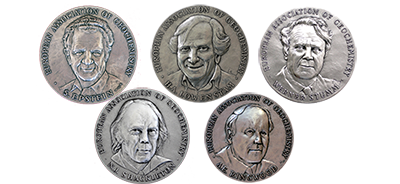
The EAG Science Innovation Award recognizes scientists who have recently made a particularly important and innovative breakthrough in geochemistry. The geochemical research must be highly original and contribute in a significant fashion to our understanding of the natural behavior of the Earth or planets.
The EAG Science Innovation Award is bestowed annually to a scientist within 30 years equivalent full time scientific employ from the start of PhD, which must be completed. Eligibility is determined by the status of the candidate at the close of the year in which nominations are received and not the year the award is presented; hence, for the 2024 Science Innovation Award, candidates should have started their PhD in 1993 at the earliest (but see information on career breaks here).
Nominations of underrepresented groups are encouraged.
We are committed to promoting the diversity of our awardees, to recognizing a wide range of different types of exceptional contribution, and we acknowledge the different career paths that lead to the achievement of such contributions.
The EAG Science Innovation Award subject area differs from year to year, according to the following five-year cycle:
2021 Alfred Edward “Ted” Ringwood Medal honoring his work in petrology and mineral physics
2022 Heinz Lowenstam Medal honoring his work in biogeochemistry
2023 Nicholas Shackleton Medal honoring his work in climatology
2024 Samuel Epstein Medal honoring his work in isotope geochemistry
2025 Werner Stumm Medal honoring his work in low temperature and surface geochemistry
The award is presented annually at the Goldschmidt Conference and consists of an engraved medal, an honorarium (1000 Euros), a certificate and inclusion as a Geochemistry Fellow.
 Recipient of the 2024 Science Innovation Award:
Recipient of the 2024 Science Innovation Award:
Evelyn Füri
Centre de Recherches Pétrographiques et Géochimiques (CNRS – UL), France
During the last few years, Evelyn Füri has accumulated an impressive record of very original results on the origin of volatile elements (mainly N, H and noble gases) in lunar rocks, Martian samples, cometary materials from the Stardust mission, differentiated meteorites and asteroid returned samples. These results were achieved by combining laser assisted noble gas mass spectrometry and high mass-resolution secondary ion mass spectrometry to resolve the distribution of the isotopes of H, N and rare gases at microscale in these extra-terrestrial samples. Read more
The 2024 EAG Science Innovation Award is named in honor of Samuel Epstein honoring his work in isotope geochemistry.
The 2024 Science Innovation Award Lecture, will be presented at the Goldschmidt2024 Conference in Chicago, USA, in August 2024.
Former recipients of the Science Innovation Award
- 2023 Rosalind Rickaby, University of Oxford, UK – Nicholas Shackleton Medal – Citation by Adina Paytan with Acceptance and Award Lecture by Rosalind Rickaby
- 2022 Lenny Winkel, ETH Zürich, Switzerland – Heinz Lowenstam Medal – Citation by Janet Hering and Acceptance by Lenny Winkel
- 2021 Fabrice Gaillard, Institute of Earth Sciences at Orléans, France – Ted Ringwood Medal – Citation (video) by Jannick Ingrin and Acceptance (video) by Fabrice Gaillard
- 2020 Kevin Rosso, Pacific Northwest National Laboratory, USA – Werner Stumm Medal – Citation by Benjamin Gilbert and Mike Hochella and Acceptance by Kevin Rosso
- 2019 Ariel Anbar, Arizona State University, USA – Samuel Epstein Medal – Citation by Tim Lyons and Acceptance by Ariel Anbar
- 2018 Jess Adkins, Caltech, USA – Nicholas Shackleton Medal
- 2017 Bo Thamdrup, University of Southern Denmark – Heinz Lowenstam Medal
- 2016 Jon Blundy, University of Bristol, UK – Ted Ringwood Medal
- 2015 Philippe Van Cappellen, University of Waterloo, Canada – Werner Stumm Medal
- 2014 James Farquhar, University of Maryland, USA – Samuel Epstein Medal
- 2013 Jérôme Chappellaz, French National Center for Scientific Research (CNRS) and University Joseph Fourier, Grenoble, France – Nicholas Shackleton Medal
- 2012 Katherine Freeman, PennState University, USA and Daniel Sigman, Princeton University, USA – Heinz Lowenstam Medal
- 2011 Kei Hirose, Tokyo Institute of Technology, Japan – Ted Ringwood Medal
- 2010 William H. Casey, UC Davis, USA – Werner Stumm Medal
- 2009 John M. Eiler, Caltech, USA – Samuel Epstein Medal
- 2008 R. Lawrence Edwards, University of Minnesota, USA – Nicholas Shackleton Medal


 Evelyn Füri, Centre de Recherches Pétrographiques et Géochimiques - CNRS - UL, France
Evelyn Füri, Centre de Recherches Pétrographiques et Géochimiques - CNRS - UL, France Rosalind Rickaby, University of Oxford, UK
Rosalind Rickaby, University of Oxford, UK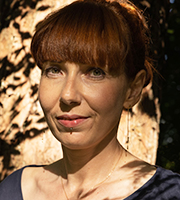 Lenny Winkel, ETH Zürich, Switzerland
Lenny Winkel, ETH Zürich, Switzerland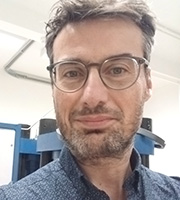 Fabrice Gaillard, Institute of Earth Sciences at Orléans, France
Fabrice Gaillard, Institute of Earth Sciences at Orléans, France Kevin Rosso, Pacific Northwest National Laboratory, USA
Kevin Rosso, Pacific Northwest National Laboratory, USA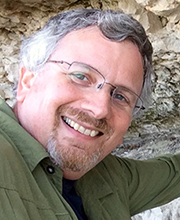 Ariel Anbar, Arizona State University, USA
Ariel Anbar, Arizona State University, USA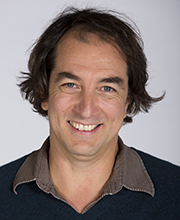 Jess Adkins, Caltech, USA
Jess Adkins, Caltech, USA Bo Thamdrup, University of Southern Denmark
Bo Thamdrup, University of Southern Denmark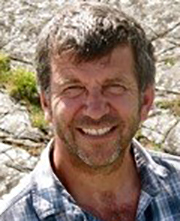 Jon Blundy, University of Bristol
Jon Blundy, University of Bristol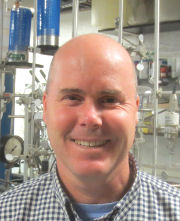 James Farquhar, University of Maryland
James Farquhar, University of Maryland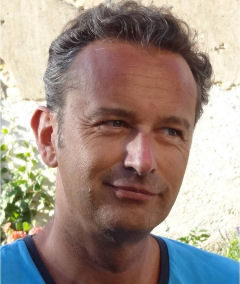 Jérôme Chappellaz, CNRS, France
Jérôme Chappellaz, CNRS, France